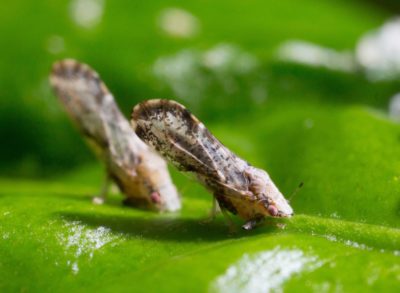
Living with huanglongbing (HLB) disease (citrus greening) is a much different process for citrus growers than protecting their crop from it. Growers in the cold-hardy citrus region are currently trying to keep the devastating disease out of their area.
Industry experts like Michael Rogers, University of Florida Institute of Food and Agricultural Sciences Citrus Research and Education Center director, are reminding growers about the dangers of citrus greening and how it devastated Florida’s primary citrus-growing regions. Rogers spoke about HLB management during the Citrus Health Forum in Quincy, Florida, on Feb. 22.
“Where we are right now in Central Florida is we’re living with HLB,” said Rogers. “We understand that all of our trees are infected with the disease. We’re putting less emphasis on psyllid management. We’re not removing infected trees. We’re doing more in terms of trying to improve tree health through fertilizers and other tools to help maintain the fruit production of those diseased trees.
“In North Florida, it’s a little bit different. HLB is not present, at least not abundantly in citrus groves up here. Really, it’s about monitoring, looking for psyllids and controlling psyllids when they’re found in groves.”
The key difference between the two management strategies is tree removal. Growers in the cold-hardy region of North Florida, South Georgia and South Alabama are advised to remove trees if HLB is found. Tree removal is no longer an option in other parts of Florida. If that were the case, there would not be any citrus left.
“All of our trees are infected at this point in Central Florida, so we’re in a totally different ballgame than North Florida. We might as well be on different continents,” Rogers said. “As an industry in North Florida, you need to come to a decision on what level of infection in the grove is needed before we say we’re not going to remove the trees. It’s probably something like 10% or greater. At this point in time, it’s really best to be removing those trees to slow down disease spread.”
Tree removal and psyllid control are essential for North Florida growers to keep citrus greening disease from becoming widespread like it has in other parts of the state. Rogers emphasized that you can’t have one without the other.
“As this industry continues to grow in North Florida, the more groves that go in, the more chances for higher psyllid populations to abound. It’s really important to start out on the right foot, keep psyllid populations in check and remove infected trees when you find them,” Rogers concluded.

By Clint Thompson









